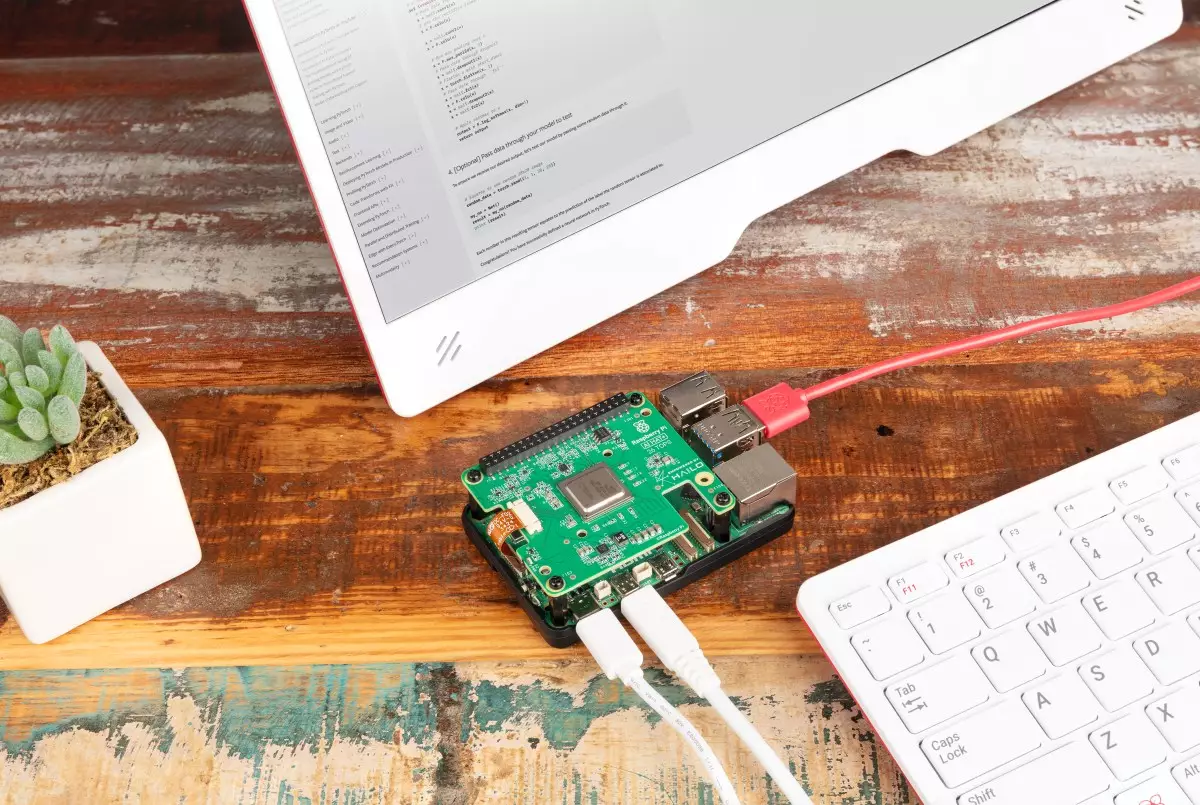The Raspberry Pi has solidified its position as a cornerstone of the tech community, promoting innovation and learning with its inexpensive, compact, and versatile single-board computers. Recently, the company has accelerated its product development timeline, introducing a slate of new offerings aimed at enhancing the capabilities of the Raspberry Pi 5. This latest wave of updates reaffirms Raspberry Pi’s commitment to catering to not only hobbyists and educational institutions but also professionals in industrial and electronic sectors.
At the heart of the Raspberry Pi 5’s latest upgrades is the newly integrated PCIe 3.0 interface accessible through a 16-pin connector. This feature has opened the door to a plethora of M.2 HAT+ extension cards. These adapters transform the 16-pin connector into a more conventional M.2 connector, thereby widening the range of hardware that developers and users can connect to their Raspberry Pi boards. Designated as HAT, which stands for “Hardware Attached on Top,” these extension cards create an opportunity for users to customize and enhance their devices more extensively than ever before.
One notable aspect of this new flexibility is the incorporation of NVMe SSDs, allowing for significantly faster data storage solutions compared to traditional SD cards and USB drives. Users who wish to boost their Raspberry Pi performance can now leverage this technology to enhance data storage capacity and transfer speeds, which is especially useful for demanding applications such as media servers and data analytics systems.
The most intriguing addition to the Raspberry Pi ecosystem comes in the form of the new AI HAT+. Released in tandem with a brand new neural network inference accelerator from Hailo, this product marks a significant leap towards incorporating artificial intelligence directly into the Raspberry Pi experience. Available in both 13 and 26 tera-operations per second (TOPS) variants, retailing for $70 and $110 respectively, the AI HAT+ provides a ready-to-use solution for edge computing in AI applications.
Although the Raspberry Pi might not boast the capability to train advanced neural networks like GPT, the introduction of this AI HAT+ opens various possibilities when it comes to running AI inference tasks directly on the device. This capability is particularly beneficial for developers aiming to exploit the power of AI in real-world applications without making significant capital investments.
Alongside the AI capabilities, Raspberry Pi is rolling out its own line of branded M.2 NVMe SSDs, directly catering to users looking for reliable storage solutions. The range includes a 256GB variant priced at $30 and a 512GB version at $45, making them competitively priced within the market. The bundled SSD Kits, which combine M.2 HAT+ extensions with appropriate SSDs, are another practical solution, bearing a combined cost of $40 for the 256GB option and $55 for the 512GB alternative.
While these products may not dramatically transform the existing landscape of Raspberry Pi applications, they provide a solid foundation for users who wish to ensure optimal compatibility and performance with their devices. The convenience of these ready-made bundles saves users time and effort, allowing them to focus on what really matters—creating and innovating with their Raspberry Pi systems.
The rapid introduction of new products surrounding the Raspberry Pi 5 demonstrates the company’s agile response to the evolving needs of its user community. By offering advanced extensions like the M.2 HAT+ and the AI HAT+, along with custom SSDs and kits, Raspberry Pi is enabling users to extend their capabilities and dive deeper into the world of programming, artificial intelligence, and data storage solutions. As these new products find their way into the hands of developers, educators, and innovators, we can anticipate an explosion of creative projects and applications that push the limits of what this humble single-board computer can achieve. The future of Raspberry Pi is undoubtedly vibrant, with exciting developments that can elevate both the hobbyist and professional experience alike.

